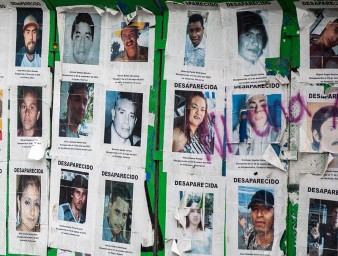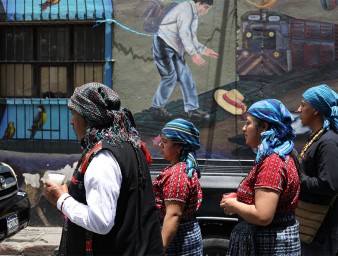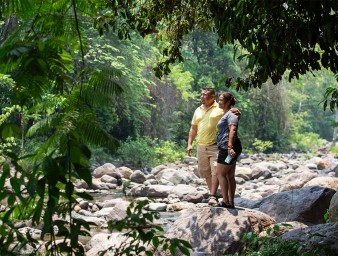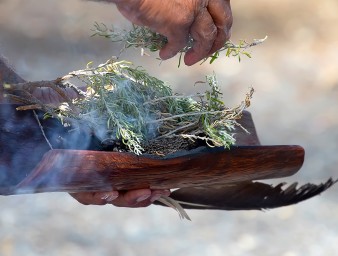Monitoring elections in Guatemala: one UN protecting human rights defenders
07 October 2015
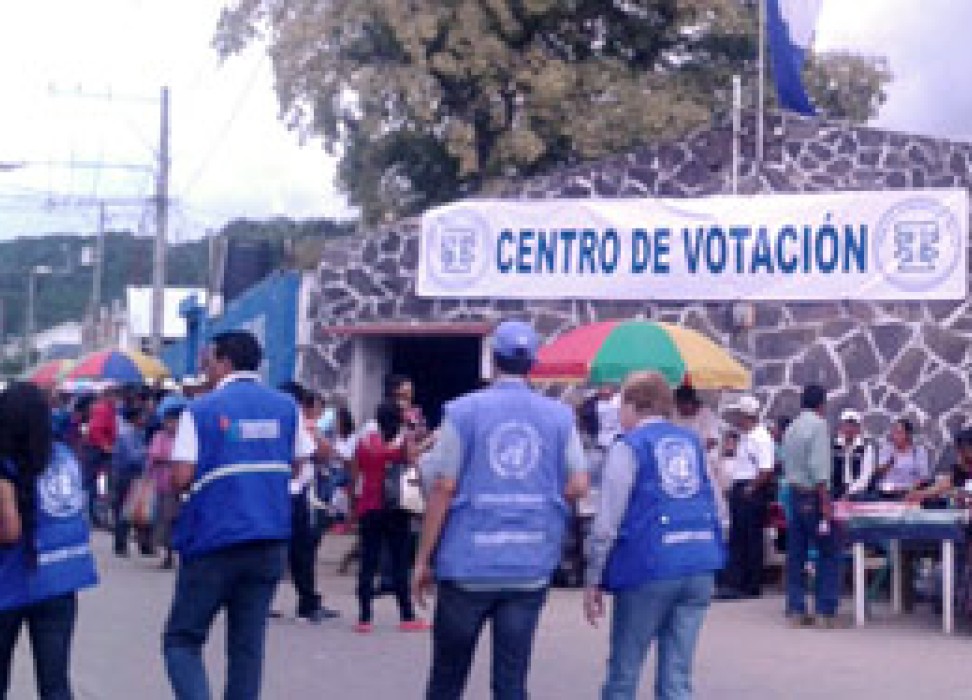
The first round of the general elections in Guatemala, on September 6, took place in the middle of a political crisis. Tensions had been rising since April, when the Attorney General ´s Office and the UN backed International Commission against Impunity in Guatemala (CICIG) revealed a large-scale corruption scandal that culminated with the resignation and imprisonment of both, the Vice-President and the President. The corruption scandal also triggered massive protests demanding in-depth institutional reforms.
Facing a volatile scenario that could lead to outbreaks of violence and reprisals against human rights defenders, OHCHR Guatemala deployed several monitoring teams throughout the country to observe potential violations of human rights during the elections. The missions were carried out in close coordination with the national human rights institution, the office of the Procurador de los Derechos Humanos (PDH).
“The objective was to prevent violence and ensure the protection of human rights defenders, including journalists and the new activists involved in the social movements demanding political reforms and justice”, said Alberto Brunori, OHCHR-Guatemala Representative. “Supporting the mandate of the Procurador during the elections was also crucial in this strategy”, he added.
In order to increase the scope of the deployment, OHCHR’s field offices in Bolivia, Colombia and México sent observers to join the monitoring teams. The missions were also strengthened with staff from other United Nations entities. As a result, 11 monitoring teams accompanying PDH´s observers were deployed to 30 municipalities in nine departments of the country. The deployment was made possible thanks to funding from the European Union.
“The presence of OHCHR in the field during the elections contributed to facilitate a safer environment for human rights defenders”, Brunori pointed out. “It also ensured State protection in cases of intimidation against two journalists and threats received by a civil society organization during the voting day”, he affirmed.
Lolita Chávez, an indigenous woman and leader from the K’iché People’s Council, agrees: “I work in areas prone to conflicts, power struggles and the presence of criminal groups, and in 2005 I was granted precautionary measures by the Inter-American Commission on Human Rights. Therefore it was very good and encouraging to have OHCHR presence as a way to support human rights defenders”, she concluded.
The joint presence of OHCHR and PDH in the polling centers also had a positive impact on voters, who perceived a safer environment. Previously, OHCHR had provided technical assistance for the preparation of a risk map of social conflicts during the electoral process which allowed the identification of critical regions to be monitored. In addition, UN volunteers working for OHCHR provided human rights training to 550 volunteer electoral observers of the PDH.
This is an example of the comprehensive and integrated way in which OHCHR works, both with the United Nations System and with its own field offices. For the observers, the experience of participating in the joint teams was considered a good practice to be repeated.
“This exercise has shown that, with effective coordination, it is possible to carry out joint monitoring activities. Integrating staff from different OHCHR offices has allowed each one of us to contribute with our own experience”, said Jorge Nava, a human rights officer from Mexico. “It was a 100% productive effort”, he affirmed.
On October 25, the final round of the presidential elections will be carried out.
7 October 2015
